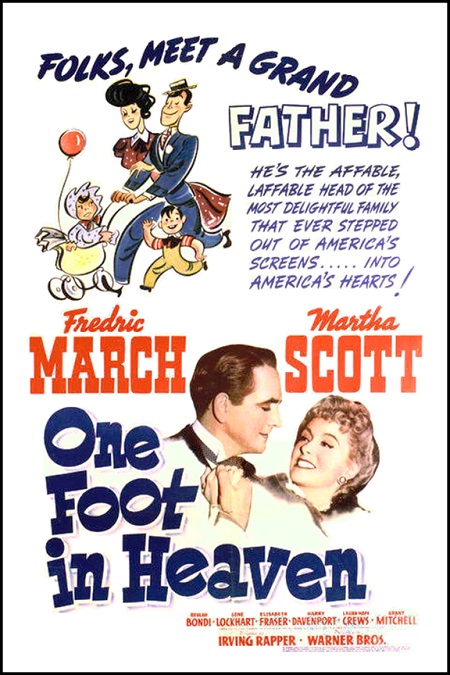
One Foot in Heaven – 1941
I know it might seem like sacrilege, but I have to say that I didn’t like this movie. I call it sacrilege because the movie was very obviously spouting a wholesome, Christian set of values. It was trying to model how a proper Christian life was a life of happiness and fulfillment. It showed how hard work, sacrifice, prayer, spiritual study, and discipline were ultimately rewarded with the attainment of ones desires.
Or did it? Based on the memoirs of Hartzell Spence about his father’s life as a Methodist minister, the film followed the life and marriage of William Spence, played by Frederick March, and his wife, Hope, played by Martha Scott. William was a devout man who always put God first in his life, first before his children, before his wife, and most certainly before himself. But then after God, he put himself before his children, and most certainly before his wife. And as any good wife would do, Hope put her husband before everything, bowing to his will despite her own feelings, because of course, complete and absolute subservience to her husband is what would give any woman her greatest happiness.
And based on the way Rev. William Spence is portrayed in this movie, I really didn’t like his character. He was dishonest, though he purported to be always truthful. He was manipulative, even once resorting to blackmail, and bullying, though he condemned others as sinful for their scheming. He was unbelievably insensitive to his wife and children caring only for what he wanted, claiming that it was God’s will. And yet the filmmakers were trying to portray him as a saint.
One of my greatest disappointments in this movie was William’s treatment of his wife. In the beginning, he was to become a doctor before he married her. But before the wedding, he gets the call to ministry. She loves him enough to leave her life of wealth and privilege and go with him to a poor town in rural Iowa. OK, I can buy that. She is sad at first, but he sweet-talks her and she learns to be happy in the life that she chose to live. But then the first time she tries to assert her own will in the naming of her third child, a name which William does not like, William gives in and promises to let her name the boy. Then at the christening, William names him what he wanted to all along. He lied right to her face with no concern at all for her feelings or her desires.
After that first major betrayal, more and more situations arose in which Hope attempted to assert her own opinion, only to be shot down and callously ignored by her supposedly loving husband. I love you so much, just don’t ever try to have or do anything that I don’t like. You finally made this house a livable home and you want to stay? Too bad. I’ve decided we’re moving. Now go make my dinner. And it was all ok because giving in to his will made her happy and spiritually fulfilled. That kind of malarkey would never fly in today’s world.
In addition to that, when the egos of some of the rich members of a congregation were bruised, the pompous and arrogant parishioners. Mr. and Mrs. Thurston, played by Gene Lockhart and Laura Hope, turned against him and attacked him by hurting his son. They had him falsely accused of getting a young girl pregnant. Now, at this, some of the anger he felt was justified, but when he learned the truth, he barged into their home, denounced them as sinners, and threatened to publicly humiliate them for their cruelties in one of his sermons unless they agreed to put up eighty-five thousand dollars to build a new church. His exact words were, “Thank God I’m a Christian or I’d kill you,” and “You don’t deserve to live. The only reason you don’t dies is that the good Lord wouldn’t know what to do with you!” Very un-Christian-like, indeed!
And lest we forget Beulah Bondi as Mrs. Sandow, a snobbish, well-to-do widow who left his parish because he had the audacity to minister to her gardener when she wasn’t home. Oh, the scandal! How dare you talk to one of my servants instead of me! And when she learned that a new church was being built, she wanted to contribute money in her husband’s memory. So he refused to let her back into his congregation unless she put up over thirty-five thousand dollars for luxury additions to the new church like a tree of Jessie window, carillon bells, and a Skinner organ. Where does the desire for a new place of worship end and self-indulgence begin?
The movie was made well enough, but it was the movie’s ambiguous moral center that I didn’t like. And yet it was nominated for Best Picture. What was it about the film that the Academy loved so much? It wasn’t nominated in any other categories. Today, I can’t imagine that anybody remembers it for lasting social significance. The acting was average, the score by Max Steiner was trite and unimaginative, and the costumes and cinematography were nothing to write home about.
But it seemed to have a self-importance about it. It was a story that was told in the form of an epic, following the family over the course of twenty-five or thirty years. We see his children born and grown, his eldest, Hartzell, played by Frankie Thomas and his sister Eileen, played by Elizabeth Frasier. We see the family as they weather one run down parish after another, never staying in one place for too long all because William lives by the adage that a rolling stone gather no moss. Who cares if your wife doesn’t want to roll anymore? Oh well. The 1940s sure were a different time, but the movie doesn’t hold up well for modern audiences.
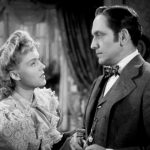
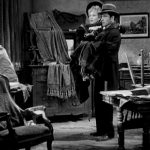
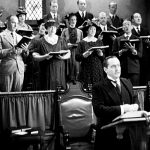

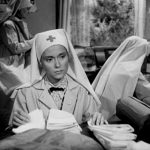
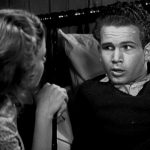

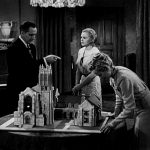

Does the movie end by them saying they were
married in the methodist church in Council
Bluffs, Iowa?